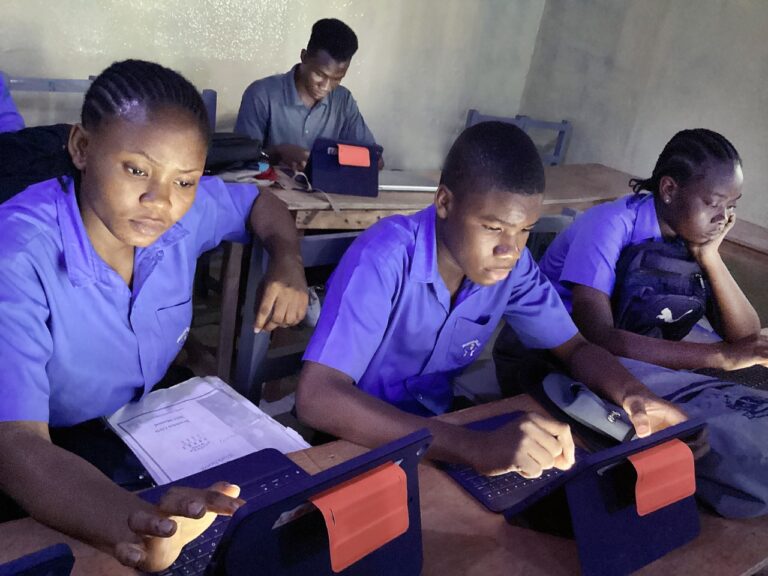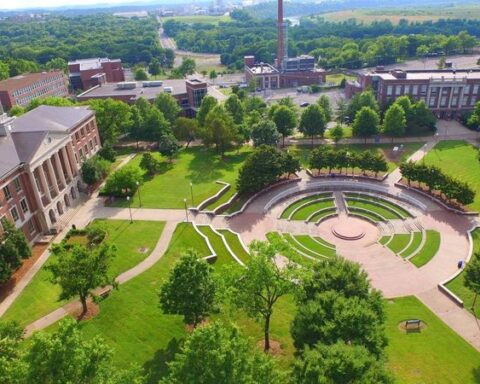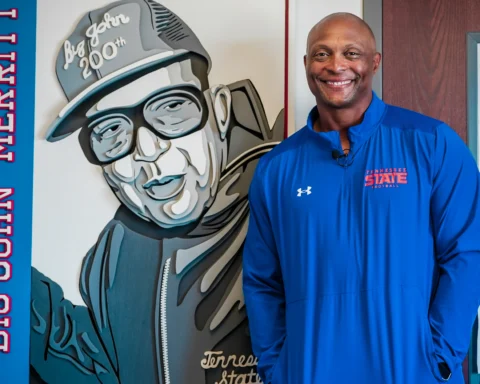By Emmanuel Freeman
Tennessee State University is continuing to bridge the digital divide through a dual enrollment partnership for underserved students in Africa. The university is expanding the program to include four new countries on the continent that have expressed interest.
TSU officials say Ghana, Malawi, Nigeria, and Zambia want to join Liberia and South Africa, where students are taking online courses in coding and creating concepts taught by TSU professors. The program is part of a STEM literacy partnership with the African Methodist Episcopal Church that gives students digital resources to develop their technology skills. All participating students receive an iPad, supplied by Apple, Inc.
“This program has been so successful in just the delivery and the opportunities that we are bringing that these four countries have asked us to duplicate our model to include them,” says Dr. Robbie Melton, vice president of the Smart Technology Innovation Center at TSU.
Melton says the programs for the new countries are in the works and will start this fall. “We have the capacity to handle those requests, because we have trained teachers on our side, but we are also using the train-the-trainer model, so the teachers over there are being trained to expand the program,” she says.
Initiated a year ago, the TSU digital literacy program is serving more than 300 high school and college students in three different locations in Liberia and South Africa: Monrovia College (high school); AME University in Monrovia, Liberia; and Wilberforce Community College in Evaton, South Africa.
The students are thankful for the opportunity. Here are few comments:
“I am very excited about the program. I have always had an interest in technology and am looking forward to advancing my knowledge. The teacher is very good and makes understanding very easy. My goal is to one day study in the US, expand my knowledge, and come back home and start my own firm.” Jacques Monbo, Senior, AME University
“I am very excited about this once-in-a-lifetime opportunity. I am doing everything possible to do well in this program. It is my dream to come to the US and study, receive a master’s degree, come back to my country to give back and make my people proud.” Mohamed Sheriffi, Jr., Sophomore, AME University
“I love this program and I love the challenge. The professor is very encouraging. I want to go to college to gain more knowledge. I want to become an air hostess.” Jewel Paye, 12th Grade, Monrovia College
“Firstly, I am excited about learning new technology, as technology keeps changing and evolving. We are excited to have this opportunity firsthand and free of charge for us and our students. Apple coding has been more advanced in learning and designing App.” Sandile Maxwell Vilakazi, Lecturer, Wilberforce Community College
In the program, eligible high school sophomores, juniors, seniors, and college students can earn both university and high school graduation credits that will start them on the pathway to degrees in STEM. Other related courses will be available provided students’ desire to continue with their educational studies through TSU.
“With these three locations, we are able to provide coding and creativity skills – basically computational basic literacy,” says Melton. “This is a major empowerment for these countries. So, with the support of Apple in donating the iPad, and with our partners here, from the AME Church, Tennessee State University, and other community partners, we have been able to launch this program to enable these students to jumpstart their knowledge and skills in technology.”
Dr. Johnnie C. Smith, executive director of the Dual Credit/Dual Enrollment Partnership and head of the Africa project at TSU, says the addition of the four countries shows that there is certainly a great need abroad.
“I think it brings a whole lot of opportunities and energies for the institution and that we are definitely headed in the right direction,” says Smith, adding that nations in other parts of the world, including the Caribbean, have also expressed interest. “We have been having multiple conversations with all of these different groups, just to try to see what their interest is and what TSU can provide.”
Ramona Whitworth, a TSU adjunct professor, who’s one of the instructors in the program, says the students’ enthusiasm about learning the new technology makes teaching them “so much easier,” even with the six-hour time difference. For instance, she is up at 4:30 a.m. to teach her 10:30 a.m. Saturday class for students in Monrovia.
“I am teaching them coding and creating concepts, something that is new to them, but they are always ready for the challenge,” says Whitmore, who is also director of graduate admissions at TSU. “Our mission is to teach them these coding concepts, with the goal of them coming up with ideas to develop apps to benefit their community.”





